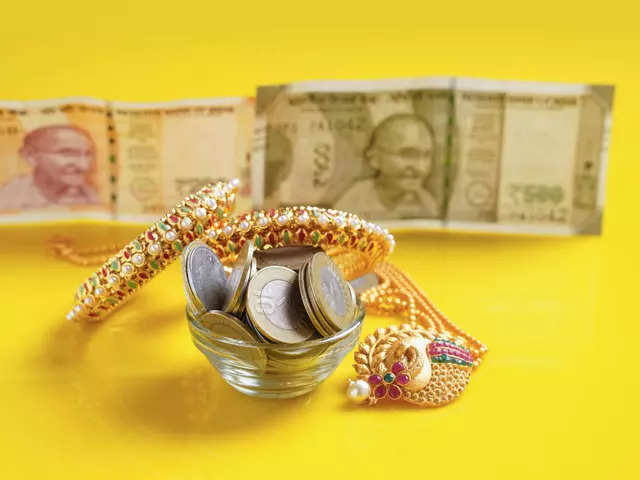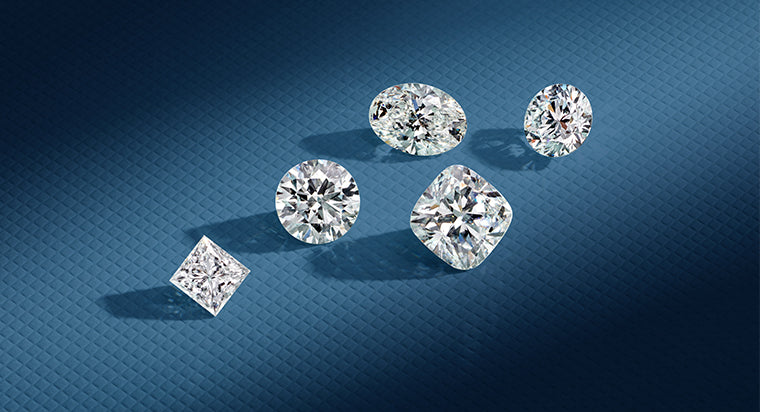What is Scrap Silver?
Scrap silver is any silver that is no longer in its original form or use, typically items that are broken, damaged, or simply unwanted. This silver may include old jewelry, silverware, coins, or even industrial scrap from manufacturing. Unlike silver bullion, scrap silver is not typically purchased for its aesthetic value or collector’s appeal but rather for its weight and metal content.
Defining Scrap Silver
Scrap silver is essentially silver that has been removed from its original purpose, usually for recycling or resale. The term can encompass anything from a piece of broken silver jewelry to old coins, silver-plated items, and even silver dental fillings. While it may not be in its prime form, scrap silver still holds significant value based on its weight and purity.
Common Sources of Scrap Silver
Some of the most common sources of scrap silver include:
- Old or broken jewelry: Rings, necklaces, bracelets, and earrings that are no longer wearable or wanted.
- Silverware: Old silver spoons, forks, knives, and serving trays that may be tarnished or unused.
- Coins: Older silver coins, especially those that are no longer in circulation or have numismatic value.
- Industrial scrap: Leftover silver from manufacturing processes, such as from electronics or medical applications.
Why Sell Scrap Silver?
There are a number of reasons why someone might choose to sell their scrap silver. Whether you’re looking to declutter, make extra cash, or simply recycle your unwanted silver, the process is straightforward and potentially profitable.
Cash for Scrap Silver
The most obvious reason to sell scrap silver is to get cash in return. Whether it’s old jewelry or unused silverware, selling your scrap silver can provide you with an instant payout. The price you receive will depend on the current market value of silver, but it can still be a substantial amount.
Clearing Out Unwanted Jewelry
Have you got a drawer full of broken or outdated silver jewelry? Selling it can help you clear out space while putting some money in your pocket. Broken chains, mismatched earrings, or rings that no longer fit can be sold as scrap silver.
Environmental Benefits
Selling scrap silver is also an environmentally responsible choice. Recycling silver helps reduce the demand for newly mined silver, which can have significant environmental impacts. By recycling silver, you contribute to reducing waste and conserving natural resources gold buyers.
How to Value Scrap Silver
Before selling your scrap silver, it’s important to know how its value is determined. Silver’s worth is largely based on its purity, weight, and the current spot price of silver in the market.
Understanding the Silver Spot Price
The silver spot price is the current market price for one ounce of pure silver. This price fluctuates daily based on supply and demand factors, including economic conditions, industrial demand, and geopolitical events. When selling scrap silver, the amount you receive will be based on the spot price, though it will be adjusted for the purity and weight of your silver.
Purity of Scrap Silver
The purity of your silver is another key factor in determining its value. Silver purity is usually measured in terms of “fineness” or parts per thousand. Common purities for scrap silver include:
- .925 sterling silver (92.5% pure)
- .999 fine silver (99.9% pure)
- Silver-plated items (may have a very low silver content)
Silver Hallmarks and Markings
Look for any hallmarks or markings on your silver items. These stamps indicate the purity of the silver and can help buyers assess its value. For example, “925” indicates sterling silver, while “.999” indicates pure silver.
Weight of the Silver
The weight of your scrap silver is another important factor in determining its value. Silver is typically weighed in troy ounces (1 troy ounce = 31.1035 grams), so it’s essential to weigh your items accurately before selling them. If you’re not sure about the weight of your silver, you can take it to a local dealer or jeweler to get an accurate measurement.
Where to Sell Scrap Silver
When it comes time to sell your scrap silver, there are several options available. The right choice for you will depend on factors like convenience, price, and the amount of silver you’re selling.
Selling to Local Jewelers
Local jewelers are one of the most common places to sell scrap silver. Jewelers often buy silver to melt it down and repurpose it. While selling to a local jeweler can be convenient, keep in mind that they may offer lower prices due to their overhead costs and the fact that they need to make a profit.
Online Silver Buyers
Another option is to sell your scrap silver online. There are a number of reputable websites and platforms, such as Cash for Silver and Silver.com, that allow you to send in your silver for evaluation and payment. Online buyers can sometimes offer higher prices, but make sure you choose a reliable service with a solid reputation.
Scrap Silver Buyers and Refineries
Refineries or dedicated scrap silver buyers are another option. These businesses buy silver in bulk, often offering competitive prices based on the silver’s weight and purity. Some refineries will even refine the silver, which can be advantageous if you have a large amount to sell.
How to Sell Scrap Silver Online
Selling scrap silver online has become increasingly popular. The process is relatively simple but requires some caution to ensure you get the best deal.
Finding Reputable Buyers
To sell scrap silver online, you first need to find a trustworthy buyer. Look for companies with positive reviews, clear terms and conditions, and a history of good customer service. Always check for customer feedback to avoid potential scams.
Shipping Your Scrap Silver Safely
When selling silver online, you’ll need to ship your items. Make sure to package your silver securely and consider using insured shipping to protect your items during transit. Many online buyers will provide pre-paid shipping labels for added convenience.
Getting Paid for Your Scrap Silver
After your silver is received and evaluated, the buyer will offer a price based on the current market rate and the purity and weight of the silver. Once you accept the offer, payment is typically issued through check, direct deposit, or online payment platforms.
Tips for Selling Scrap Silver
To get the best possible price for your scrap silver, here are some helpful tips to keep in mind:
Get Multiple Quotes
Before settling on a buyer, it’s wise to get multiple quotes. This will give you a better idea of the going rate for your silver and help you find the best deal.
Know Your Silver’s Purity and Weight
Before selling, take the time to weigh your silver and determine its purity. This will help you accurately assess its value and ensure you’re not being underpaid.
Avoid Hidden Fees and Low Offers
Be cautious of buyers who offer unusually low prices or tack on hidden fees. Make sure to read the fine print and understand the full terms of the transaction before agreeing to sell your silver.
Buying Scrap Silver for Investment
Investing in scrap silver can be an interesting way to build wealth. Scrap silver is typically sold at a discount compared to bullion or coins, which makes it an attractive option for some investors.
Why Buy Scrap Silver?
Some investors prefer buying scrap silver because it offers a lower entry point compared to other forms of silver. Scrap silver can often be purchased for less than the current spot price of silver, which means you could stand to profit if silver prices rise.
Risks and Rewards of Investing in Scrap Silver
While there’s potential for profit, investing in scrap silver comes with risks. The value of scrap silver is dependent on the current silver market, and buying scrap silver in bulk can tie up your capital until silver prices rise.
How to Buy Scrap Silver for Investment
To buy scrap silver, look for reputable sellers, whether local dealers, online platforms, or auctions. Assess the purity, weight, and current silver prices before making your purchase.
Is Scrap Silver a Good Investment?
Investing in scrap silver can be a good option for those looking to diversify their portfolio, but it’s not without its challenges. Silver can be volatile, and investing in scrap silver is not a guaranteed path to wealth.
Long-Term Investment Potential
While scrap silver can be an excellent long-term investment, its value will fluctuate over time based on global economic conditions. Understanding the silver market and having patience is essential.
Volatility of Scrap Silver Prices
As with all commodities, silver prices can be volatile. Be prepared for ups and downs in the market, and consider your investment timeline when purchasing scrap silver.
Diversification with Scrap Silver
For many investors, adding scrap silver to a diversified portfolio can provide a hedge against inflation and currency fluctuations. However, it’s best to balance your silver holdings with other assets to reduce risk.
How to Melt Scrap Silver
For those looking to turn scrap silver into new items or invest it in a different form, melting scrap silver can be an option.
Safety Precautions
Melting silver requires high temperatures, so it’s crucial to take proper safety precautions. Always work in a well-ventilated area, wear protective gear, and ensure you’re using proper tools and equipment.
Using a Home Furnace vs. Professional Refining
If you’re melting silver at home, you can use a furnace designed for metalworking, but it may be best to leave refining to professionals if you have a large quantity.
The Environmental Impact of Scrap Silver
Recycling silver not only offers financial benefits but also helps reduce environmental harm by conserving natural resources and minimizing mining activities.
Recycling Silver
Silver recycling reduces the need for silver mining, which can have a significant environmental impact. By recycling silver, you’re helping to reduce the carbon footprint of the industry.
Eco-Friendly Benefits of Selling Scrap Silver
When you sell scrap silver, you’re contributing to a greener world by encouraging the reuse and recycling of precious metals rather than exploiting new resources.
Scrap Silver vs. Bullion
While scrap silver can be a good investment, it’s essential to understand how it compares to other forms of silver, such as bullion.
Differences in Value
Scrap silver is typically worth less than bullion due to its lower purity and potential impurities. However, it can still be profitable if bought at the right price.
Which is Better for Investment?
Bullion offers more stability and can be easier to sell or trade, but scrap silver provides more opportunities to buy at a discount. The right choice depends on your investment strategy.
Conclusion
Selling, buying, and investing in scrap silver can be a rewarding venture for those interested in precious metals. Whether you have old jewelry you want to cash in or you’re considering scrap silver as an investment, understanding the process will help you maximize your returns. With careful research, safety precautions, and an eye for quality, scrap silver can be a profitable asset in your financial portfolio. Happy investing!




